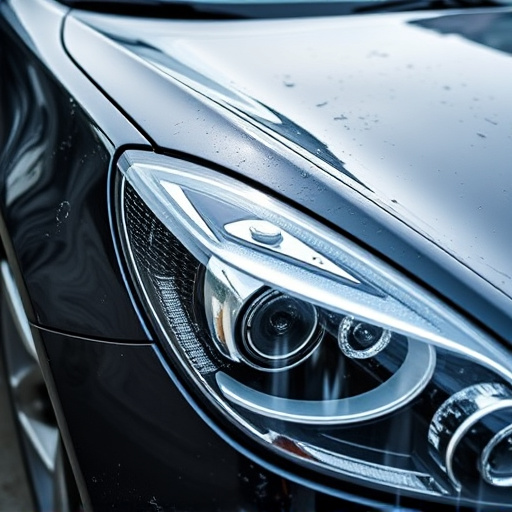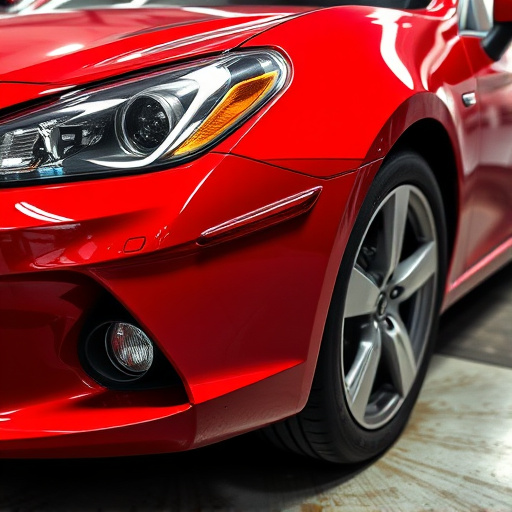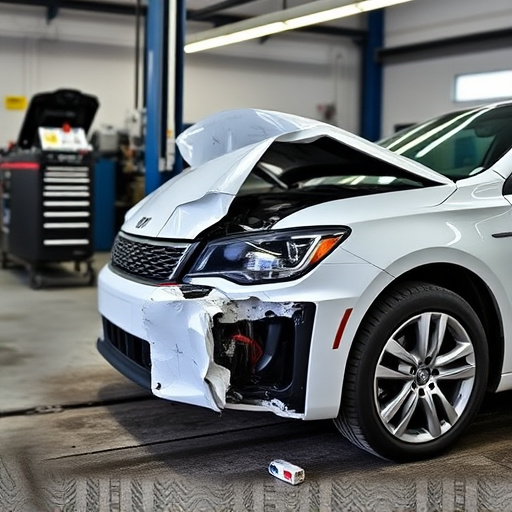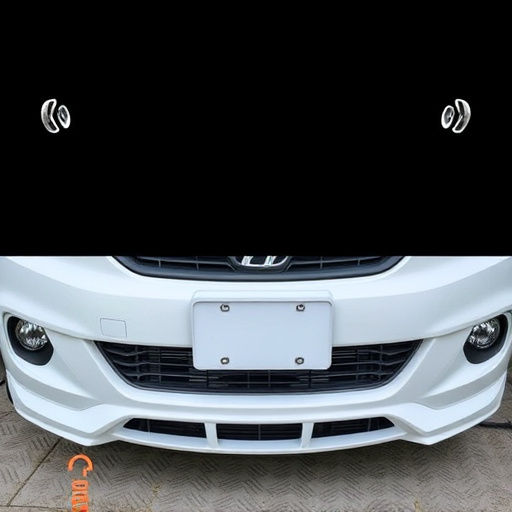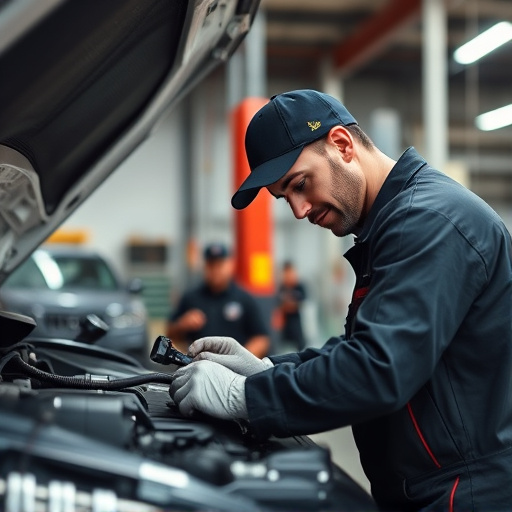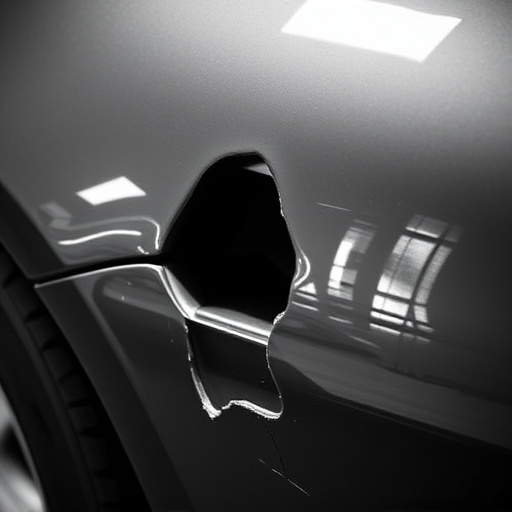Mercedes rain sensors can fail due to chemical contamination, debris, age, weather, or defects. Regular cleaning and obstruction checks prevent failures. After car washes, clean sensors with distilled water; for complex cases, consult a mechanic. Maintain exterior protection for extended sensor lifespan. Timely professional adjustment ensures optimal performance and safety.
Mercedes owners often face the frustration of a malfunctioning rain sensor after a car wash. This article guides you through understanding the causes, effectively adjusting your sensors post-wash, and preventing future issues. Learn how to navigate the intricate system of Mercedes rain sensors, ensuring optimal performance for safer driving. Discover simple steps to maintain these crucial components, enhancing your vehicle’s overall reliability and safety.
- Understanding Mercedes Rain Sensor Failure Causes
- Adjusting Rain Sensors After a Car Wash
- Preventive Measures for Future Sensor Maintenance
Understanding Mercedes Rain Sensor Failure Causes

Mercedes rain sensors are designed to detect moisture on the windshield and automatically adjust wiper speed accordingly. However, like any component, they can fail due to various reasons. Understanding these causes is crucial for effective Mercedes rain sensor adjustment after a car wash or following sensor failure. One common issue is contamination from car wash chemicals, which can disrupt the sensor’s functionality. Other factors include debris accumulation, such as dirt and leaves, that block the sensor’s view of the windshield.
Additionally, age-related wear and tear, exposure to extreme weather conditions, and manufacturing defects can all contribute to rain sensor malfunction. When a Mercedes rain sensor fails, it may not respond properly to changing weather conditions, leading to either excessive or insufficient wiper usage. Regular maintenance, including thorough cleaning and checking for obstructions, can help prevent such failures. If a sensor does fail, visiting a reputable car repair shop or automotive body shop is recommended for expert diagnosis and Mercedes rain sensor adjustment services.
Adjusting Rain Sensors After a Car Wash
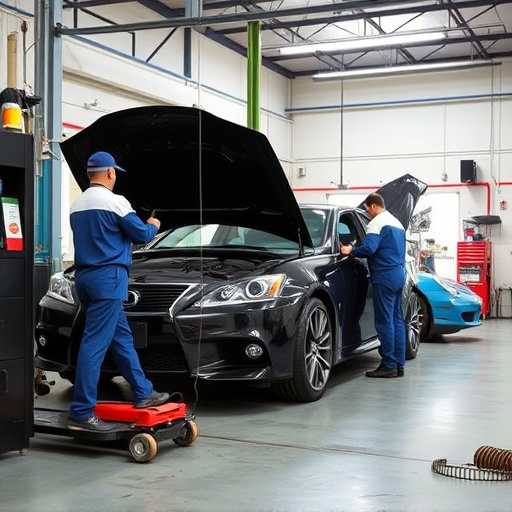
After a car wash, especially a thorough one, it’s common for the Mercedes rain sensors to require adjustment. This is because the powerful jets used during washing can dislodge or clean away essential components of the sensors, leading to their failure to function optimally immediately afterward. The good news is that this issue can be easily rectified with a simple adjustment process.
To calibrate your Mercedes rain sensors post-car wash, drive at a moderate speed and ensure all windows are closed. Then, turn on the wipers and adjust the settings so they activate when the sensor detects raindrops. This real-time test will help you fine-tune the sensors’ sensitivity. If adjustments are still needed, consult a professional mechanic or refer to your vehicle’s owner manual for detailed instructions tailored to your Mercedes model, especially if you’re considering classic car restoration or tire services as part of your vehicle body repair process.
Preventive Measures for Future Sensor Maintenance

To prevent future sensor failures and ensure optimal Mercedes rain sensor adjustment, regular maintenance is key. After a car wash, it’s crucial to inspect the sensors for any debris or damage. A simple cleaning with distilled water can often resolve minor issues, but for more severe cases, seeking professional assistance from an auto collision center or dent repair service might be necessary. These experts have the tools and expertise to thoroughly clean and adjust the sensors, ensuring they function correctly without causing further damage to the car bodywork services.
Additionally, maintaining a clean and protected car exterior can prolong sensor lifespan. Using water-repellent coatings and regular waxing not only enhances the car’s appearance but also shields the sensors from harsh weather conditions and potential contaminants, reducing the risk of failure. By combining these preventive measures with timely professional intervention when needed, you can keep your Mercedes rain sensors in top condition, enhancing safety and driving experience throughout all seasons.
After exploring the causes of Mercedes rain sensor failure, learning how to adjust sensors post-car wash, and understanding preventive measures, it’s clear that regular maintenance is key to keeping these essential systems functioning optimally. By promptly addressing any issues and taking preventative steps, you can ensure your Mercedes’ rain-sensing wipers provide reliable performance in all weather conditions, enhancing both safety and vehicle longevity. For a smoother driving experience, remember the simple yet effective techniques outlined here for adjusting and maintaining your Mercedes rain sensors.

